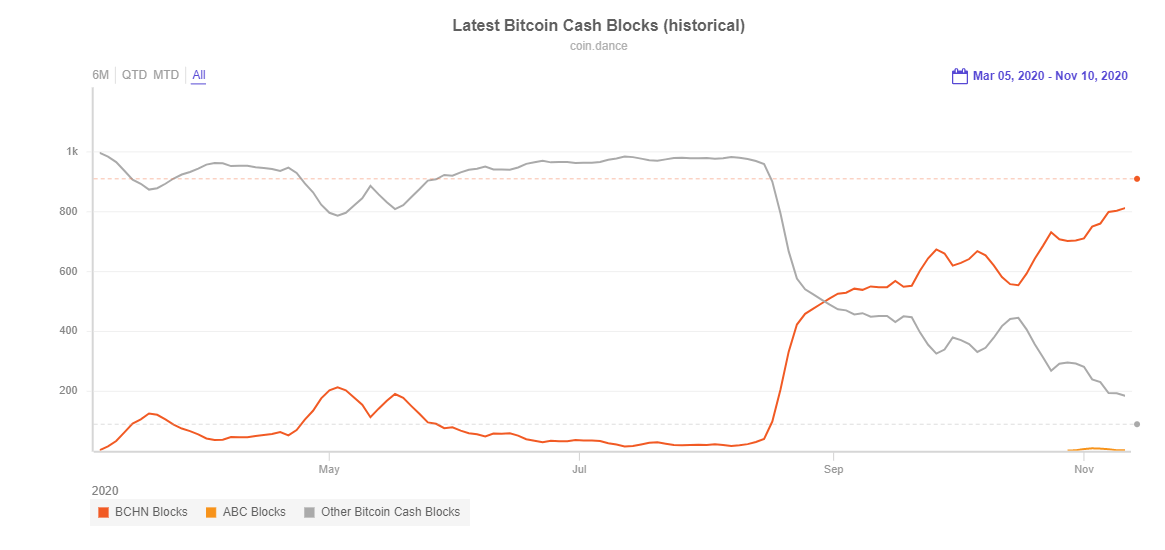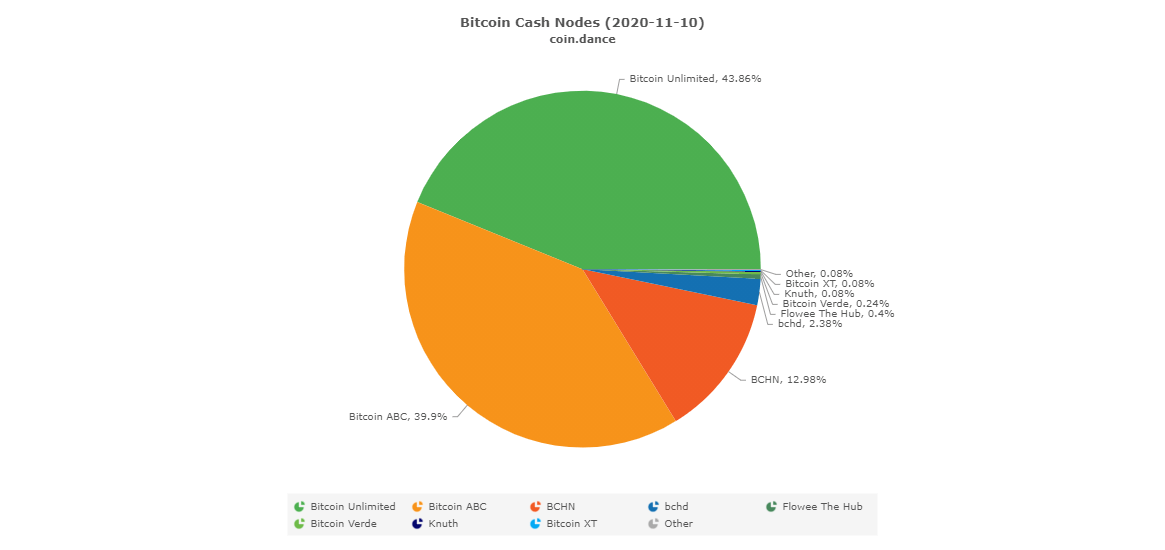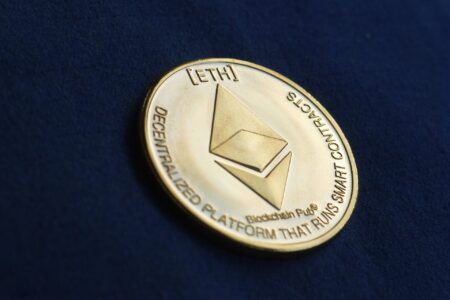The Bitcoin Cash blockchain, created through a hard fork of the Bitcoin blockchain, is set to undergo a contentious hard fork on November 15, which could lead to a chain split.
Bitcoin Cash’s blockchain split back in 2018 to create Bitcoin Satoshi’s Vision (SV), and now another contentious hard fork threatens to split the chain. The community is now split over the introduction of a novel mining algorithm and moving 8% of block rewards from Bitcoin Cash miners to a development fund.
The two sides are Bitcoin Cash Node (BCHN) and Bitcoin ABC. Bitcoin ABC’s development team was behind the proposal asking for 8% of block rewards to be allocated to the ABC development team. The idea itself, is worth noting, isn’t new. Zcash (ZEC), a privacy-centric coin has a similar fund, and Dash (DASH) sees a much larger percentage go to its treasury, which is used to promote the cryptocurrency.
Bitcoin Cash’s community, however, believes the 8% allocation to developers goes against the cryptocurrency’s decentralized nature, and is even seen by some as a “tax” to the network. Roger Ver, a BCH proponent who stopped supporting BTC when the flagship cryptocurrency’s blocks became full, has been vocal on its support for BCHN.
The community has, as a result of the controversial proposal, once again split into two, with one side believing the 8% allocation is sound, and the other seeing it as coercion. Given the divide, Bitcoin Cash miners have been signaling support for one of the sides.
Miners signal support by writing messages on blocks they find, showing they support one of the sides. Binance’s mining pool has been leaving messages ending with “powered by BCHN” to signal support. It’s currently the largest BCH mining pool, with around 43% of the network’s total hashrate.
Data from Coin.Dance shows that out of the last 1,000 blocks mined on the blockchain 812 signaled support for BCHN, while 3 signaled support for ABC. The remaining blocks did not show support for either side.

While the BCHN side is clearly seeing miners’ support, it might not mean a similar proportion of the community is behind it. Coin.Dance’s data shows that 554 BCH nodes are running Bitcoin Unlimited, while 504 are running Bitcoin ABC. Only 164 run BCHN.

After the hard fork, if a side does not follow consensus it will split off from the Bitcoin Cash blockchain and create a new blockchain. In 2017, a hard fork created Bitcoin Cash from the Bitcoin (BTC) blockchain, and in 2018 a hard fork on BCH created BSV.
Given the community’s divide, the BCH ticker could now be challenged by either Bitcoin ABC or BCHN’s side.
Exchanges’ Announcements on the Hard Fork
Cryptocurrency exchanges were quick in reacting to the contentious Bitcoin Cash hard fork, with OKEx seemingly being the first to make an announcement. The exchange revealed that in the event of a fork, users holding BCH ahead of the chain split will receive new assets from the other blockchain.
OKEx’s CEO, Jay Hao, noted on social media that the firm will continue supporting BCH futures and perpetual swaps without changing the ticker during the hard fork.
Other exchanges detailed that while the funds from the split may be distributed to users, only the Bitcoin Cash blockchain with the most hash power will be listed for trading. Crypto.com revealed that “should a competing chain be created, Crypto.com plans to only support the chain with the more hash power.”
Huobi similarly showed support for the fork, noting in a disclaimer that given the uncertainties surrounding it, it will “respect the opinions of the community and name the final winner BCH.” Binance has also revealed support for the fork, noting it will credit users with the tokens created from the minority chain.
Poloniex, which under other management support BCH and BSV futures in 2018, has launched pre-fork trading for Bitcoin Cash ABC (BCHA) and Bitcoin Cash Node (BCHN).
Featured image via Pixabay.









